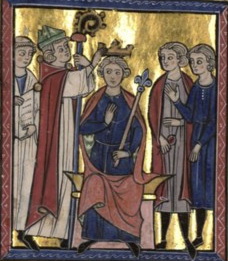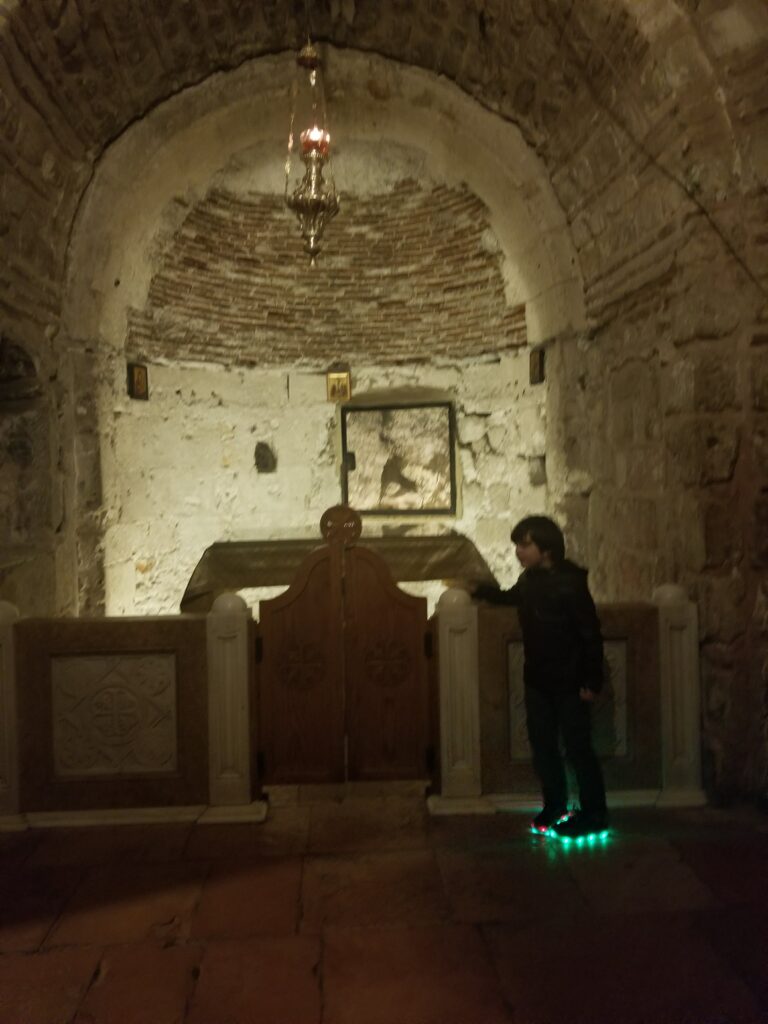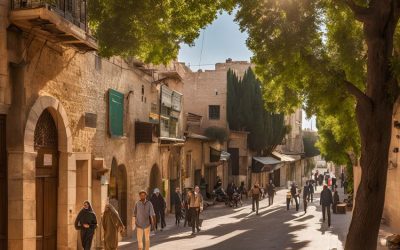
The Coronation of King Fulk of Jerusalem (source)
King Fulk, also known as Fulk V of Anjou, was a French nobleman who became King of Jerusalem in 1131 through his marriage to Queen Melisende, daughter of King Baldwin II. Fulk was a skilled military leader and played a crucial role in expanding the territory of the Kingdom of Jerusalem during his reign.
Fulk’s early years were spent in Anjou, France, where he was the Count of Anjou and Maine. He was also a member of the First Crusade and was one of the leaders of the Christian forces that captured Jerusalem in 1099. After the success of the First Crusade, Fulk decided to stay in the Holy Land and became a prominent figure in the newly established Kingdom of Jerusalem.
Fulk’s reign was marked by a number of military campaigns and territorial expansion. He led several successful expeditions against the Muslim states in the region, including a campaign against the city of Ascalon, which was a major stronghold of the Fatimid Caliphate. He also launched a successful campaign against the Kingdom of Damascus, which led to the annexation of the city of Banyas.
Fulk’s most significant achievement was the construction of the castle of Kerak, which became a major fortress in the region and played a key role in the defense of the Kingdom of Jerusalem. The castle was built on a strategic hilltop and was considered to be one of the most impregnable fortresses of the time.
In addition to his military achievements, King Fulk also played a significant role in the development of the Kingdom of Jerusalem. He supported the construction of new churches and monasteries, and he also established a number of new towns and villages.
King Fulk’s legacy can still be seen in Jerusalem today, as many of the buildings and fortifications constructed during his reign still stand. His descendants continue to hold a special place in the history of the city and the Kingdom of Jerusalem.
In terms of family background, King Fulk was the son of Count Fulk IV of Anjou and Ermengarde of Maine. He was a member of the House of Anjou, which was a prominent noble family in France during the Middle Ages. King Fulk was also the grandfather of King Baldwin IV and great-grandfather of Queen Sibylla, who were both also rulers of Jerusalem.

King Fulk’s burial place in the Church of the Holy Sepulchre (credit: author)
In conclusion, King Fulk of Jerusalem played a significant role in the history of the city during his reign. He was a skilled military leader and territorial expansionist, who’s legacy is still visible in the city today. His descendants continue to hold a special place in the history of Jerusalem and the Kingdom of Jerusalem.



